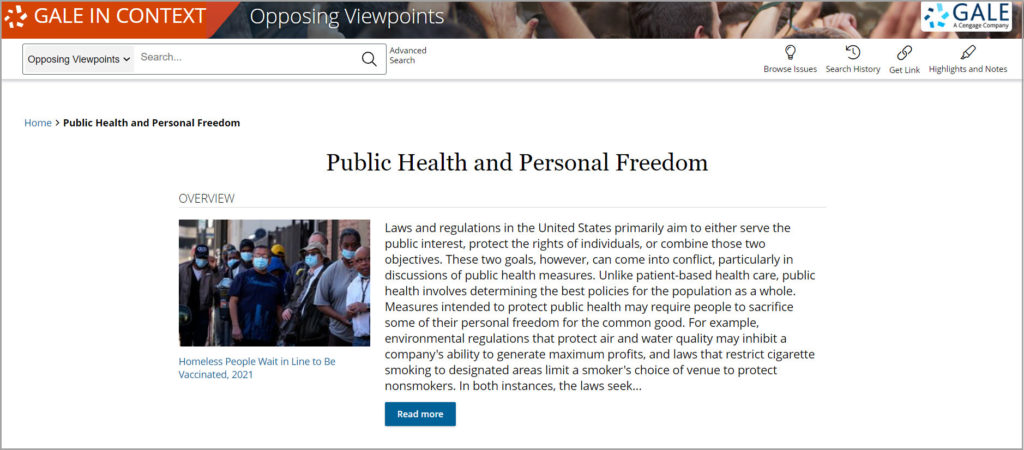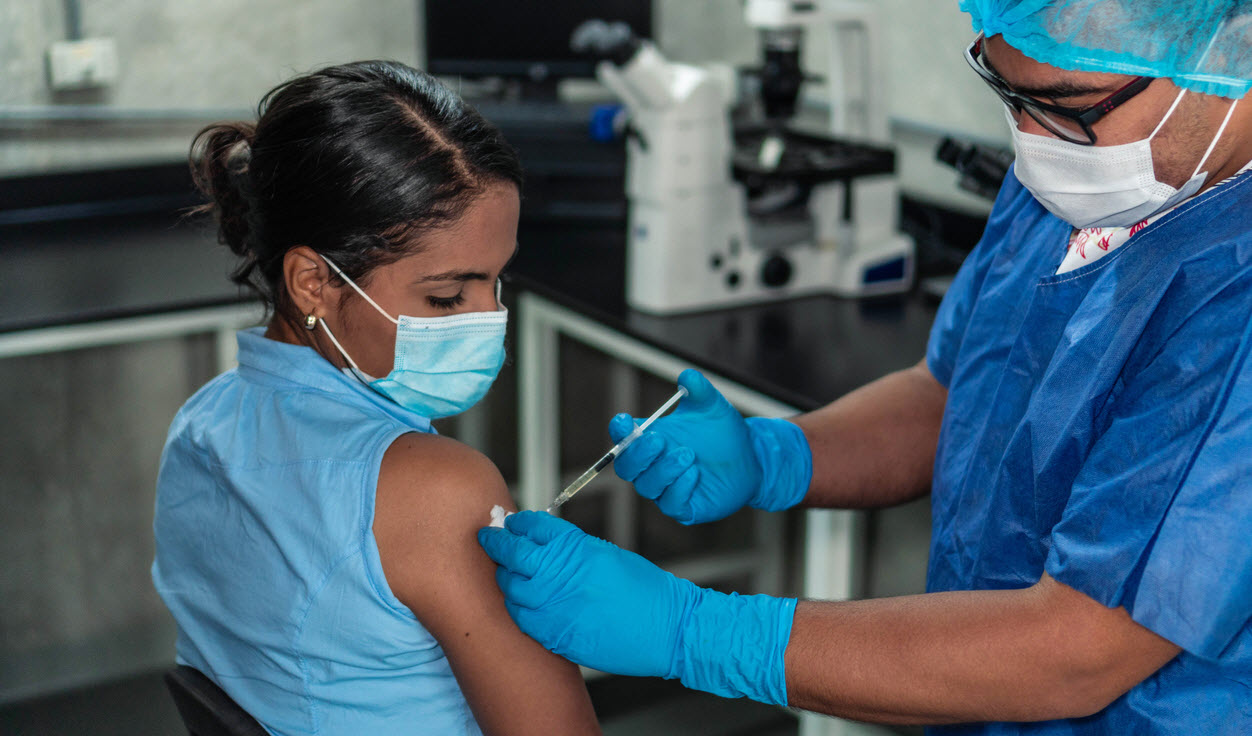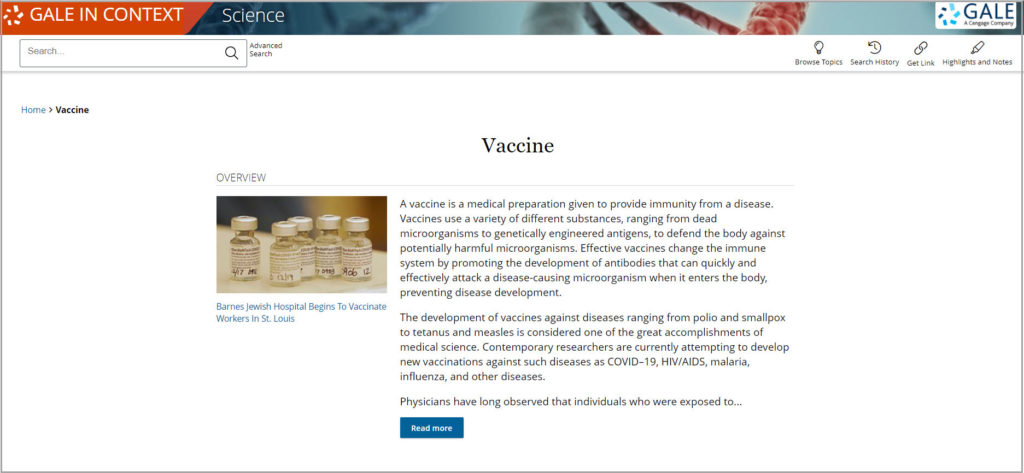| By Gale Staff |
By mid-February 2022 in the United States, the COVID-19 pandemic had killed an estimated 918,000 people, and more than 2,000 people continued to die from it each day. About 214 million people, more than 64 percent of Americans, had been fully vaccinated (and 76 percent partially vaccinated) with one of several available COVID-19 vaccines shown to be safe and effective. Many had also received a booster shot. However, a minority of Americans had not been vaccinated for a variety of reasons, including medical complications, opposition to all vaccines, or fear of a new and relatively untested vaccine. As some businesses and government agencies required proof of vaccination for different activities and employment, some unvaccinated people resented the request to put the greater good of public health before their personal freedom to choose not to get the vaccine.
Such debates have been ongoing in the United States since the first vaccine mandate was imposed. In 1809, Massachusetts required people over the age of 21 to be vaccinated for smallpox. By 1855, the mandate was extended to all school-age children attending public schools. Legal challenges against these requirements eventually went to the U.S. Supreme Court. In 1905, it ruled in Jacobson v. Massachusetts that individual states had the authority to mandate vaccinations in the interest of public health. Decades of testing, regulation, and regular review for the safety of most vaccines have led to a consensus among the scientific community that despite a minimal risk for rare side effects, the vaccines available in the United Sates are safe and effective. However, after more than 100 years of precedent for requiring vaccinations for the public good, a minority of Americans remain skeptical or believe that such mandates are a violation of their right to bodily autonomy.
The COVID-19 pandemic has put this debate into the national spotlight again, as public health officials have urged vaccines and other public health measures, including wearing face masks, to help prevent the spread of the airborne coronavirus that causes COVID-19. As the pandemic has continued and such requests have become requirements in some locations, many social media outlets have politicized public health measures and spread misinformation or disinformation about vaccines and other public health measures. As scientific researchers, medical professionals, and health-care workers have tried to educate the public, they have occasionally been faced with hostility from patients.

In addition, legal challenges and political protests against public health measures like vaccine mandates have become more frequent. Court cases against vaccine mandates have again made it to the Supreme Court. On February 11, 2022, the Supreme Court rejected an emergency request from a group of New York City schoolteachers who sought to block a vaccine mandate on religious grounds. Also in February, protests against vaccine mandates spread to other countries, stopping transportation and commerce in several cities on the U.S.-Canada border as groups of truck drivers and other protesters blockaded roads to protest vaccine requirements for truckers entering Canada.
For many people, finding reliable and credible information from people and sources they trust seems to be the most important way to overcome genuine concerns or to determine whether the public good may occasionally take precedence over strongly held political views on personal freedoms.
For more information on the medical community’s consensus on the safety and efficacy of vaccines in general, the Gale In Context: Science database includes information here.
For more on the research and science of the COVID-19 vaccines, the Gale In Context: Science database has more here.
For more information about the political and cultural discussions and ongoing debates around Americans’ personal and public obligations, see the “Public Health and Personal Freedom” topic in the Gale In Context: Opposing Viewpoints database here.



